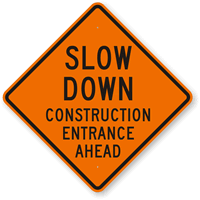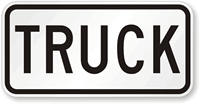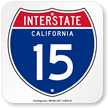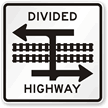Are state-tolled interstates in America’s future?
Last week, the Obama administration announced details of its transportation bill first been announced in February. As Next City reports, sandwiched among the budget allocations — which total $302 billion — is an important proposal: the Department of Transportation is asking Congress to allow it to permit states to tack on new tolls to Interstate highways.

A stretch of Interstate 5 being demolished in Eugene, OR. From Don Hankins.
Some of the allotments outlined in the bill include $199 billion for highways, which is a 22 percent increase on fiscal year 2014 amount, and $72 billion for mass transit, which is a 70 percent increase.
It’s no secret that highways and infrastructure are woefully in need of repair funds. Yet perhaps the most logical option — raising the gas tax — is extremely unpopular. “They’re spending too much time in Colorado in a pot shop if they think that an increase in the gas tax is going to happen,” House transportation chair John Mica said earlier this year, according to Next City.
Tolling existing roads isn’t necessarily popular among politicians either, but it may be the solution. Co-founder of the libertarian Reason Foundation, Robert Poole is a longtime supporter of highway tolling, for existing lanes as well as new lanes. (As Next City notes, libertarians and urbanists agree on tolling existing lanes, although urbanists are largely against building new lanes at all.)
In a report last year, Poole described a tolling plan that would cover the costs for over half a trillion dollars needed to rebuild the country’s Interstate network. The plan would also provide a hefty $400 million for building new lanes. “I was very glad to see the Administration endorse federal permission for all states to use toll financing for reconstructing their portions of the aging Interstate highway system,” Poole wrote, according to Next City.
Poole explained, “While the overall bill is not likely to go anywhere due to having no credible funding source, it helps that the option of toll-financed Interstate reconstruction is now a mainstream proposal. There is already a bipartisan tolling flexibility bill in the Senate, where a similar measure came close to getting included in the Senate version of MAP-21 [the 2012 highway reauthorization bill that was passed] last time around.”
That lack of a “credible funding source” Poole points out is dependent on what the government terms “one-time transition revenue from pro-growth business tax reform.” While that is unlikely to pass, the idea of tolling the Interstate may become a more appealing option. “I think an underappreciated player in this may be governors and state [departments of transportation],” continued Poole.
“While I don’t know of any who are ready to move forward on implementing toll-financed reconstruction, they are desperate for more tools in their toolbox as the feds cut back on 50-plus years of ever-greater annual highway funding.”
So, who is against Interstate tolling? Truckers, for one. They want a hike in the gas tax, which would in effect force regular drivers to subsidize truckers — regular drivers would burn more of the taxed gas on local roads, while truckers travel longer distances on Interstates. As Next City notes, Interstates host 25% of the country’s total vehicle miles traveled, but only include 2.5 percent of all highway lane miles.
Regardless of where the funding comes from, existing infrastructure will not hold up for much longer without it. Poole puts it simply: “The lanes won’t exist in any reasonable shape for much longer.We’re not talking about putting tolls on existing lanes and leaving them as they are. We’re talking about rebuilding pieces of the Interstate, section by section, and putting tolls on after the rebuilt capacity is there.”
Category: Construction, Infrastructure

















